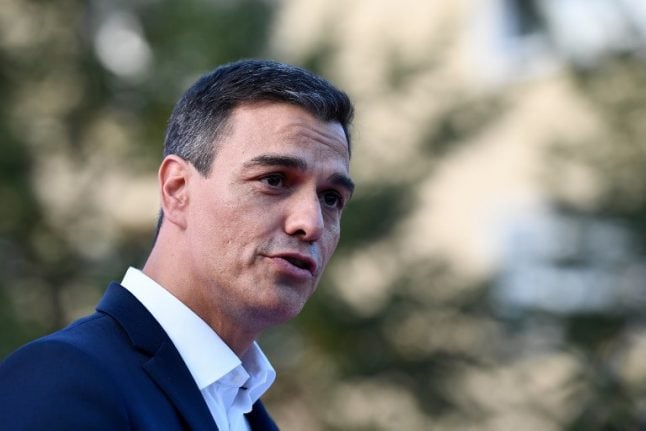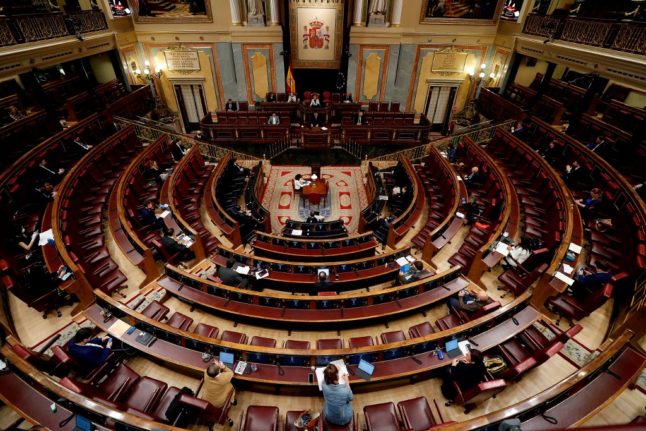Sanchez, who took over on June 2 after toppling his conservative predecessor amid a graft scandal, has said he intends to steer the country through to mid-2020.
But his Socialist party has only 84 seats in Spain's 350-seat parliament, the smallest amount for a government since the country returned to democracy following dictator Francisco Franco's death in 1975.
That makes it hard for the Socialists, who rely on support from far-left party Podemos and smaller Catalan and Basque nationalist formations, to face up to mounting challenges:
Two resignations
Two of Sanchez's cabinet ministers have quit already. The first to go was Maxim Huerta, the culture and sports minister who resigned just a week after taking office after it emerged he had been fined for tax fraud.
On Tuesday, former health minister Carmen Monton stepped down following reports of irregularities in how she obtained an academic degree. Spanish media said Monton had been awarded grades without attending classes and that her final project contained plagiarised passages — charges she denied.
READ MORE: Spanish health minister resigns over 'mastergate' scandal
Catalonia

Sanchez earlier this month offered Catalonia a vote on greater autonomy, which was swiftly rejected by the wealthy region's separatist president Quim Torra, who wants a legally binding independence referendum.
Around one million people marched Tuesday in Barcelona in favour of Catalan independence, a sign that the separatist camp remains highly motivated.
More protests are planned for the anniversary of last year's banned referendum on October 1st, which was marred by police violence, and that of a failed declaration of independence on October 27th.
2019 budget
Sanchez faces an uphill battle to get the 2019 budget approved meanwhile, with his main ally Podemos pressing for more public spending.
“It's a very complex political equation,” said Antonio Barroso, analyst at Teneo Intelligence in London, adding that the government does not have enough support from its disparate partners to approve a new spending plan.
Sanchez must maintain Madrid's promise to cut the Spanish deficit to 1.8 percent of economic output in 2019 from 3.1 percent last year, which limits room to bargain with other parties.
He has thus had to drop a promised bank tax, proposing instead fresh levies on financial transactions.
A bank tax, “since it would have been new, would have had to be approved in parliament, and that would have been complex,” Barroso said.
The government will likely propose a 2019 budget which will “demonstrate what type of policies it would implement if they remain in power” after local, regional and European elections in May 2019.
U-turns
The government has had to make U-turns on several positions meanwhile, from blocking an arms sale to Saudi Arabia to a sex workers union.
READ MORE: Spain works to avoid row with Saudi Arabia over bomb deal
“This is not the government of Spain, it is the government of about-turns,” said Andrea Levy, a lawmaker with the main opposition conservative Popular Party (PP).
In the most recent example, Defence Minister Margarita Robles revived the chances of selling 400 laser-guided bombs to Saudi Arabia — engaged in a bloody conflict in Yemen — a week after Spain said the deal had been cancelled.
The government also reversed course on the creation of a sex workers union.
Labour Minister Magdalena Valerio said the government would try to ban the Organisation of Sex Workers (Otras) union, less than a month after her ministry granted it legal status without her knowledge.



 Please whitelist us to continue reading.
Please whitelist us to continue reading.